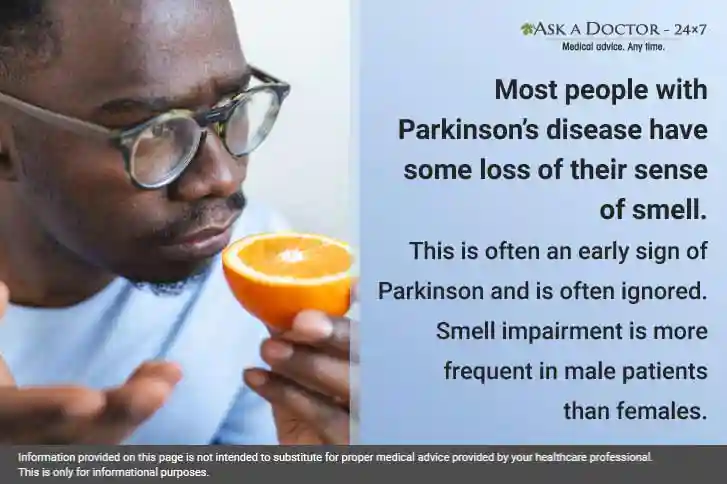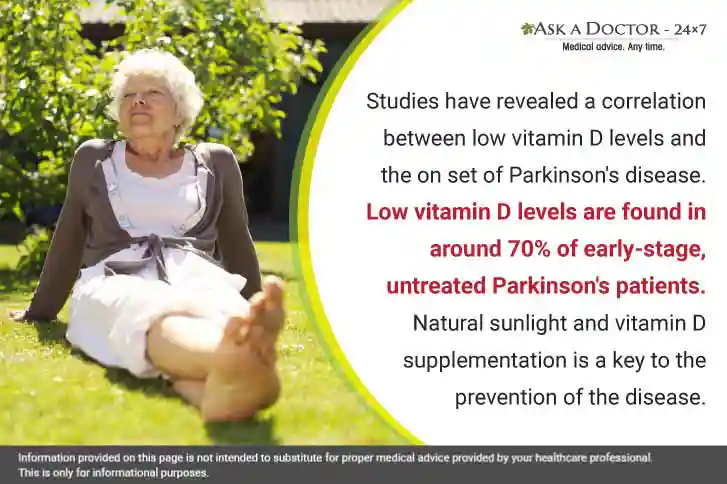Parkinson's Disease: Identify Early Signs, Causes, Risk Factors, And Ways To Prevent It
Parkinson's disease (PD) is a slowly progressive neurodegenerative illness that begins years before a diagnosis can be made. It results from a combination of environmental and hereditary causes and brings with it a wide range of challenges in activities of daily life. Common symptoms include tremors, balance problems, painful muscle contractions, slow movement, and difficulty speaking. The majority of those diagnosed with Parkinson's disease are the older adults, over 60 years old, however, some of the cases are also diagnosed before the age of 45. Parkinson disease is associated with high rates of disability and requires immense support and care. It is also observed that many people with PD tend to develop dementia, in later years.
Let's know more about Parkinson's Disease with one of our expert authors...
Identifying the Signs & Symptoms of Parkinson's Disease

Parkinson's disease symptoms appear gradually. Diagnosing early symptoms can be challenging because they are often ambiguous and non-specific. Some of common early signs of Parkinson's disease are as follows:
- Tremor or shaking of particular body parts: It typically begins in one of your limbs, most frequently the hand or fingers. Trembling could result even at rest.
- Slow movement (bradykinesia): Parkinson's disease gradually reduces your range of motion, making daily activities like getting out of bed and walking increasingly difficult and time-consuming.
- Rigid and stiff muscles: Any muscle in your body has the potential to become rigid, which can hurt and limit your range of motion.
- Posture and balance problems: It can cause you to slouch and have trouble maintaining your equilibrium.
- Reduced automatic movements: You may be less able to perform unconsciously performed gestures like grinning, winking, or swinging your arms while walking.
- Sleep problems: Arise usually due to restless leg or rapid eye movement.
- Loss of smell
- Depression or mood changes
- Localized muscular soreness
Additional symptoms that are observed in some cases are:
- Speech alteration causes speech to be halting, quiet, rapid, monotonous, or slurred.
- Tiredness and fatigue
- Difficulty chewing or swallowing
- Constipation
- Blinking is less than normal due to diminished facial muscle control.
- Cramped handwriting causes writing to become smaller (micrographia) brought on by issues with muscular control.
- Hallucinations, delusions, and dementia may develop over time.
You may Ask a Psychiatrist or Chat with a Psychiatrist online regarding the symptoms or other concerns related to Parkinson's disease at Ask a Doctor-24X7.
What are the Causes of Parkinson's Disease
Parkinson disease is associated with the loss of nerves in the substantia nigra region of the brain. This region contains nerve cells that produce the neurotransmitter known as dopamine. Dysfunction of dopamine pathways has been implicated in the development of Parkinsonism, when cells that produce dopamine die in the brain. The resultant dopamine deficiency leads to problems with movement and other symptoms of Parkinson's disease. As dopamine levels continue to fall, symptoms tend to become more severe. Parkinson's disease symptoms typically do not appear until around half of the substantia nigra's nerve cell activity has been lost.
Understand the Risk Factors of Parkinson’s Disease
The exact cause of Parkinson’s is not known; however, certain factors may make it more likely to occur. The likelihood of acquiring Parkinson's disease may be raised by genetic and a number of environmental factors.
The environmental triggers include:
- Age: The illness typically manifests itself at the age of 60 or above. However, in a few cases, symptoms may appear before the age of 45.
- Gender: Males are 50% more likely than females to develop this illness.
- Previous head traumatic injury: Research shows that even a mild traumatic brain injury could increase the risk of Parkinson’s disease by 56%. For instance, head trauma from contact sports may raise the chance of developing the illness.
- Exposure to toxins: The brain cells that generate dopamine may be impacted by specific chemicals. Specific products like metals, pesticides, solvents, and other contaminants (polychlorinated biphenyls) increasing the likelihood of Parkinson’s.
- Medications and other drugs: Certain drugs, such as antipsychotics used to treat mental diseases like schizophrenia, can impede dopamine's activity and result in Parkinson-like symptoms. Also, synthetic heroin products or recreational drugs can lead to Parkinson’s-like symptoms.
- Genetic link to Parkinson’s: Genetic factors may account for 10–15% of instances of Parkinson’s disease. Parkinson's disease can run in families as a result of faulty genes being passed to a child by their parents.
7 Mindful Tips That Can Help Prevent Parkinson's Disease

As the cause of Parkinson's is unknown, there are no proven ways to prevent the disease. However, with the ongoing research, we can prevent the disease by the following:
- Go for regular physical activity, including aerobic exercise, strength training, and functional activity might reduce the risk of Parkinson's disease.
- Practice yoga that can improve your balance, flexibility, mobility, and strength.
- Perform brain boosting exercises like reading, crossword puzzle solving, playing Sudoku, or other mental exercises.
- Consume caffeine in control. It is observed that those who consume caffeine found in coffee, tea and cola get Parkinson's disease less often than those who don't drink them. Green tea consumption is also related to a reduced risk of developing Parkinson's disease.
- Incorporate omega-3 fatty acids into your diet that tend to be anti-inflammatory and prevent the death of dopamine producing cells in the brain.
- Go organic when growing or buying your vegetables and fruits as pesticides and herbicides have been linked in causing Parkinson’s.
- Choose for folic acid fortified fruits and green vegetables as folic acid present in vegetables are a powerful preventive measure against Parkinson's disease. Dark green vegetables like broccoli, spinach, green beans, sprouts, asparagus, and okra are the best providers of folic acid. Lentils, avocados, and legumes are other foods high in this B vitamin.
You can Consult a Nutritionist online to know more about different dietary options that can help boost your brain function and cognitive abilities.
Hence, we have learned so far that Parkinson's disease is caused by the death of nerve cells that produce dopamine in the substantia nigra region of the brain. Dopamine is involved in the regulation of movement and its deficiency can cause symptoms-associated with movement, such as stiffness, tremor, and difficulty walking.
Although there is currently no known cure for Parkinson's disease, adopting a "brain-healthy" diet and increasing your daily physical activity level may help lower your risk or postpone the start of symptoms. Also, make sure to visit your physician if you think you or a family member may be showing early signs of Parkinson's disease. The progression of Parkinson's disease is reduced by early diagnosis and prompt therapy.
If you have any questions regarding Parkinson's disease or its related symptoms, you can Consult a Neurologist at Ask a doctor, 24x7.
Recently Answered Questions Related to Parkinson's Disease
- Suggest Treatment For Parkinson Disease
- What Causes The Shaking Of Hands When The Medicines Are Delayed?
- What are the Treatment Options for Parkinson's Syndrome
- Suggest Treatment For Urinary Incontinence And Memory Loss For Parkinson Syndrome
- What Is The Cure For Parkinson S Disease?
- Is Severe Fatigue A Symptom Of Parkinson's Disease?
- What Causes Hallucinations While On Amantadine And Benztropine?
- What Are The Signs And Symptoms Of Parkinson's Disease?
Disclaimer: Information provided on this page is not intended to substitute for proper medical advice provided by your healthcare professional. This is only for informational purposes.
Ask a Specialist
Recent Questions


